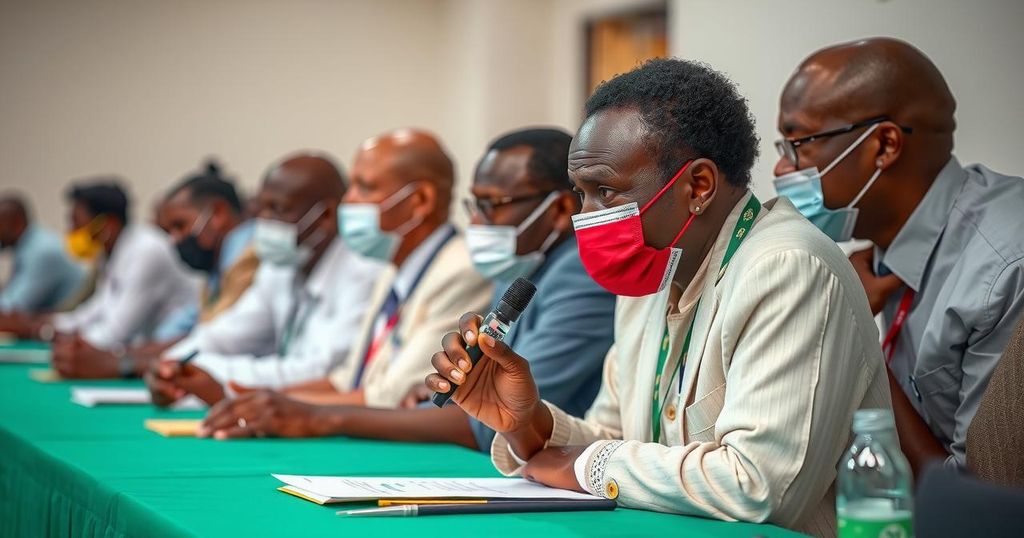Nigeria to Host Summit on Lassa Fever Vaccine Development
Nigeria will host a regional summit on January 15, 2023, to advance Lassa fever vaccine development, addressing the epidemic’s significant public health risks. With nearly 10,000 suspected cases reported in 2024 and ongoing collaborative efforts among governments, the summit aims to promote effective healthcare strategies and improve population health outcomes.
On January 15, 2023, Nigeria will host a regional summit dedicated to the advancement of Lassa fever vaccine development. This significant event will be led by the Coordinating Minister of Health and Social Welfare, Professor Muhammad Pate, who emphasized Nigeria’s role as a leader in West Africa concerning this public health challenge. The region grapples with Lassa fever, which continues to pose substantial risks to public health across various states. In 2024 alone, the country reported nearly 10,000 suspected cases, with significant fatalities.
The minister articulated that the summit aims to foster collaborative studies among a consortium of nations to expedite the development of a Lassa fever vaccine. The ongoing Lassa fever outbreak has prompted healthcare authorities, such as the Nigeria Centre for Disease Control and Prevention, to activate an Emergency Operations Centre to tackle this pressing issue effectively.
Lassa fever is an acute viral hemorrhagic fever caused by the Lassa virus, which primarily resides in the multimammate rat. Other rodents may also carry this virus, complicating efforts to control its spread. Minister Pate underscored the necessity of intergovernmental collaboration and community engagement in improving health outcomes across the nation, indicating that cooperative frameworks and accountability measures are being established to promote superior healthcare performance.
Professor Pate further noted the intersection of education and health in addressing issues like maternal mortality and vaccination rates, citing that uneducated mothers often have children who are not vaccinated. He also highlighted the critical roles various sectors, including education, women affairs, and environmental health, play in enhancing overall public health outcomes. He emphasized that security challenges hinder vaccination initiatives, calling for involvement from defense sectors to navigate these obstacles effectively.
The minister elaborated on the need for a holistic health system that transcends mere healthcare provisions, integrating essential services such as nutrition and sanitation to uplift the well-being of the populace. He articulated the vision to align health systems with the broader objectives of the President’s Renewed Hope Agenda, promoting social welfare as a multifaceted endeavor. The aim is to ensure that quality healthcare acts as a protective measure against poverty, thereby enhancing the overall welfare of Nigerians. Minister Pate concluded by advocating for comprehensive interventions that safeguard public health while addressing external factors that influence welfare, reinforcing the role of collaboration across various arms of government.
Lassa fever is a viral hemorrhagic disease endemic to Nigeria, characterized by its serious health implications for communities throughout the country. With recorded cases in numerous states, health officials are increasingly focusing on vaccine development as a preventive measure. The January 15 summit reflects Nigeria’s leadership role in addressing public health challenges in the West African region, aiming to foster collaboration among neighboring countries. Given the connection between health and various other social determinants, the Nigerian government is striving to build a comprehensive healthcare system that improves health outcomes while directly addressing the socio-economic vulnerabilities of its citizens.
In summary, Nigeria’s upcoming summit on Lassa fever vaccine development underscores its pivotal role in regional health leadership and collaborative efforts to combat infectious diseases. The discussion initiated by Minister Pate highlights the multifaceted approach required to enhance healthcare, linking education, security, and social welfare with health outcomes. This initiative is pivotal in mobilizing cross-sectoral resources to confront public health challenges and improve the overall well-being of the population.
Original Source: punchng.com




Post Comment